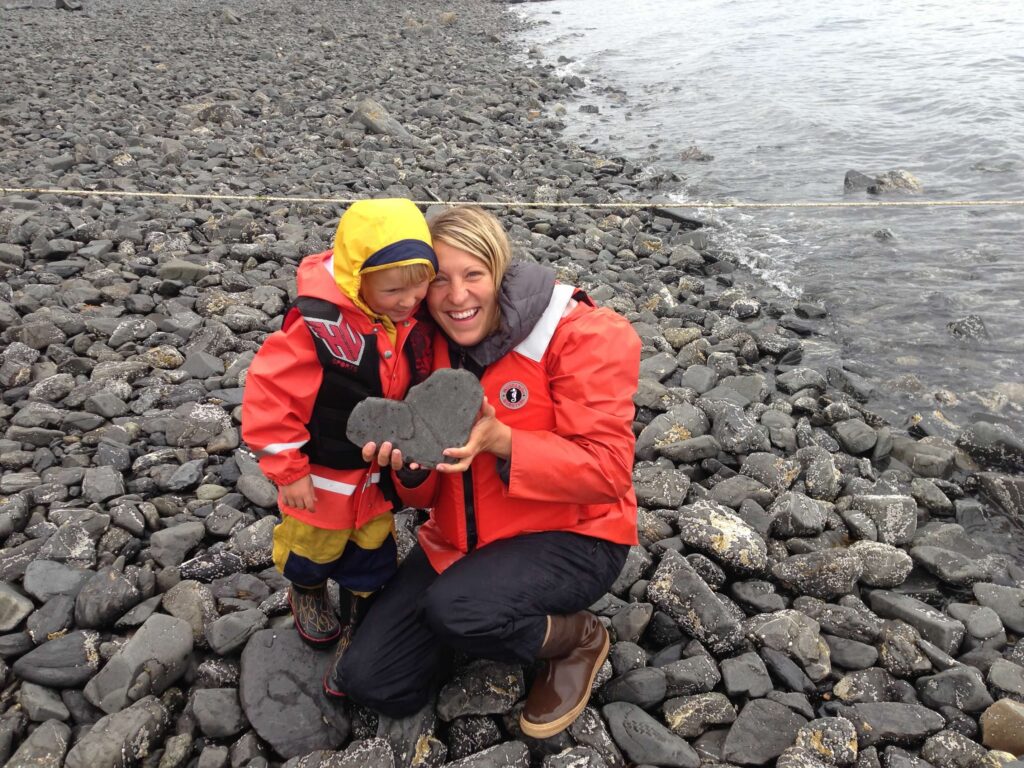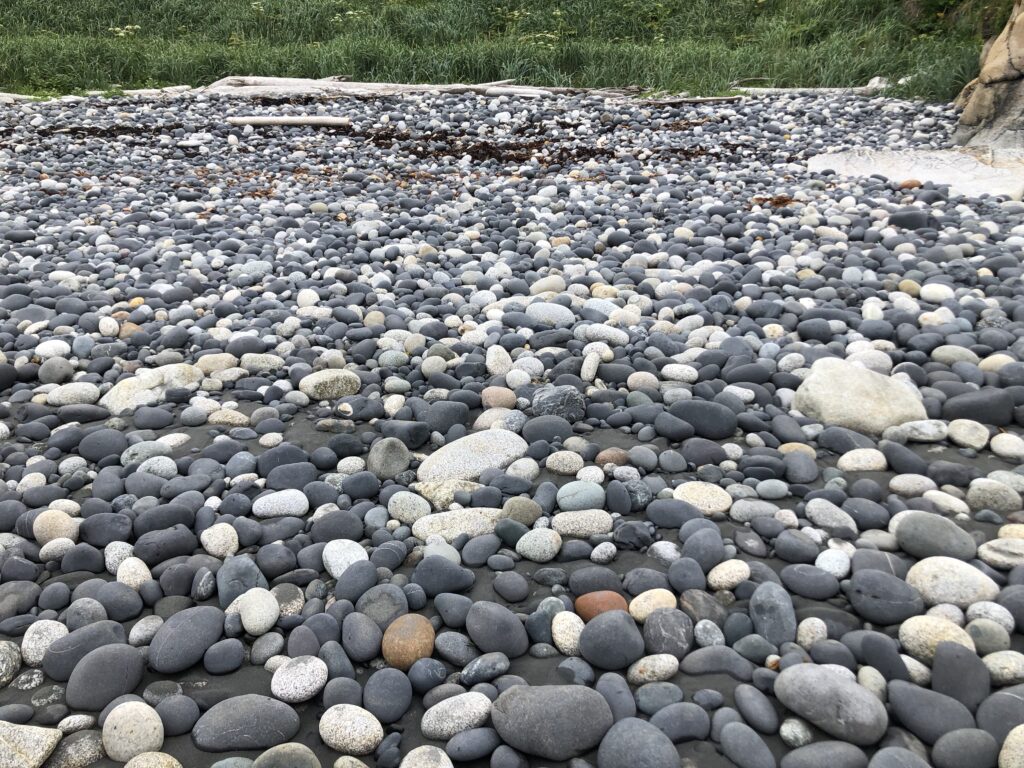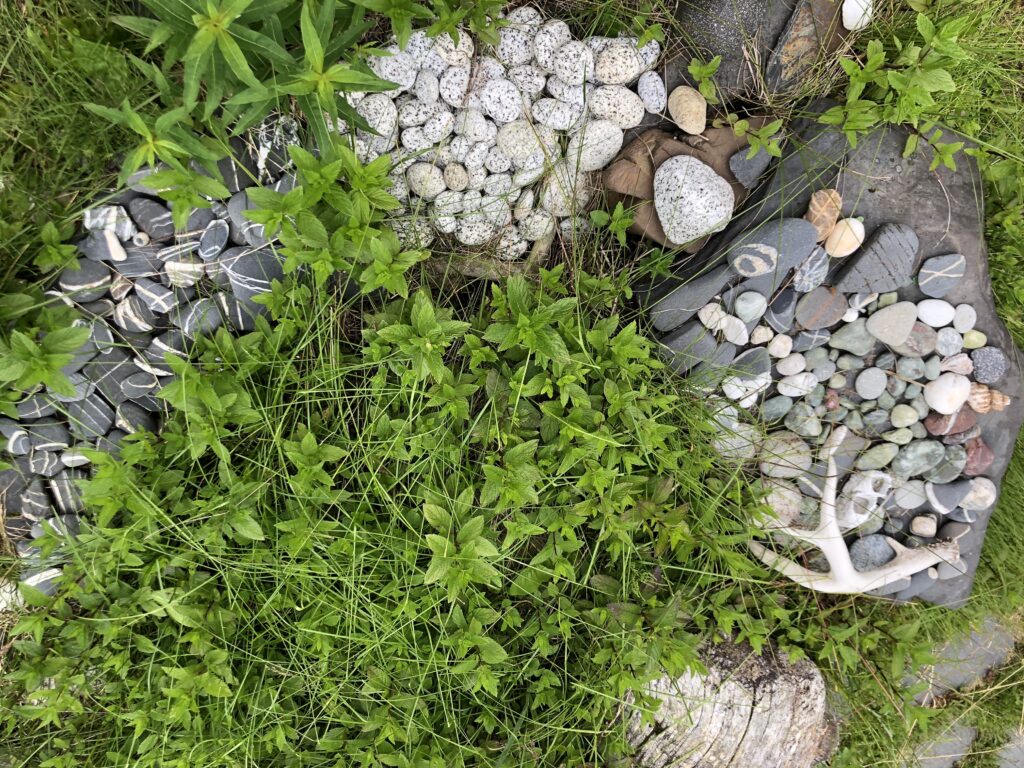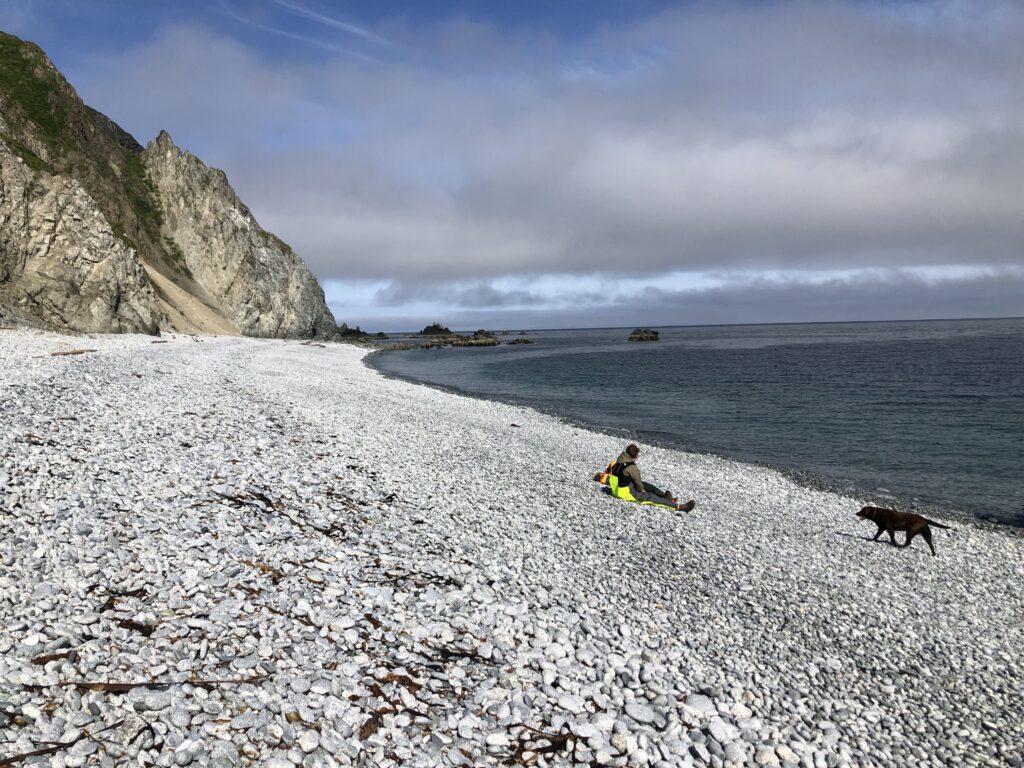I’ve always loved the meditative calm of eyes-down beach walking, picking up rocks, in spite of how quickly their wet brilliance fades in pockets. Some rocks ask to be held. I read recently that their circular appeal is rooted in our biology, that even babies and great apes prefer curved to angular. Roundness is a universal human pleasure. Even as a second grader I knew that rocks are a wonder. But did you know that we recently sent a spacecraft 200 million miles to pick up pebbles from an asteroid? Scientists say these rocks might hold the answers to the origins of our oceans and how life emerged here. They say they might answer questions we haven’t even thought up yet. Or consider the fact that of all the species that have ever lived, 99.9% are extinct. We only know and imagine them now because they became rock. And let’s say you’re beachcombing and find a flint knapped red chert point. It’s extraordinary enough just wondering whose hands held this same rock, thousands of years before you, who worked it into usefulness. But that shining stone in your hand was once a living colony in a tropical sea, was countless pelagic microorganisms deep on the ocean floor that lived and died and turned from skeletons to ooze to this red stone. This whole archipelago was a chain of mountains to the Alaska mainland, submerged and broken into islands. Kodiak sandstone holds sand that was once a Precambrian mountain belt. About the time the granite formed that is our highest mountain peaks, the deer-like ancestors of dolphins and whales were trading limbs for flippers and returning to the sea. Our cabin bookshelves and window sills are lined with rocks—striped, dappled, ringed, shades of green and rusty oranges, soft and smooth as songbird eggs. None are from Amook Island where we live. Amook is black sand and rock, black shale cliffs sheering off into brittle rectangles. Which is how most of us think of Kodiak. But last summer we skiffed to a beach made entirely of granite stones. Like some flock of colossal birds had laid hundreds of thousands of glowing white eggs. The sunlight, your footsteps, fell differently there. Holding the cold round weight in your hands, listening to the tide pulling stone against stone, time and relentless violence turning jagged to curved, you could imagine yourself changed, as if stepping from the boat into this brilliant white light, you too, had shed your sharpness.




